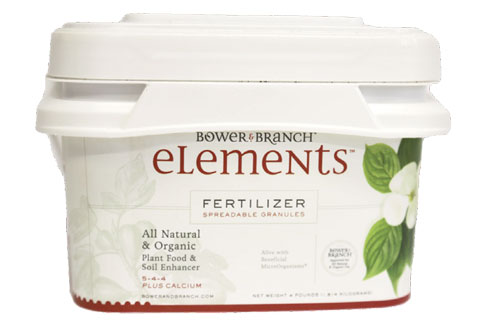4/1/2019
Asking for the Add-On Sale
Jennifer Polanz
Every busy spring season the plants tend to sell themselves, but salespeople have to work to get customers to buy products like plant food, amendments, planting mixes and controls.
It’s simply because plants are beautiful and/or serve some sort of purpose (decoration, groundcover, pollinator, privacy screen, etc.), but customers often don’t fully understand the necessity of all those bottles and bags. Those products can be intimidating to customers without explanations and recommendations.
Forgetting to Ask
Tom Hilgeman is director of member engagement at Bower & Branch, an online garden retailer that works with independent garden centers. Before that, though, he worked at White Oak Garden Center in Cincinnati, Ohio, for 17 years. He notes that the Bower & Branch website never forgets to ask a customer if they’d like to add on the Elements fertilizer they sell. Of course, it’s in the algorithm to ask, but it’s an interesting point—live salespeople aren’t an algorithm.
“Sometimes salespeople get excited about the sale and forget to ask,” he says about add-on sales like fertilizer and planting mix. “The last thing you want is for the customer to realize ‘I do need planting mix.’”
 Online, Bower & Branch not only recommends the Elements fertilizer, planting mix and watering system, but all three are required for a customer to qualify for the company’s three-year guarantee. If the customer doesn’t opt for those products, after checkout a follow-up reminder is sent via email explaining their importance and how it qualifies the customer for the guarantee. On average, the online system has a 60% conversion rate when it comes to adding on fertilizer sales.
Online, Bower & Branch not only recommends the Elements fertilizer, planting mix and watering system, but all three are required for a customer to qualify for the company’s three-year guarantee. If the customer doesn’t opt for those products, after checkout a follow-up reminder is sent via email explaining their importance and how it qualifies the customer for the guarantee. On average, the online system has a 60% conversion rate when it comes to adding on fertilizer sales.
In stores that work with Bower & Branch, staff members are trained to recommend those products, especially if the customer purchased the tree or shrub online and is picking it up in the store.
“It’s a great opportunity because the tree is already paid for,” Tom says. “It’s easier for you to add on the Elements products, but also show all the other great stuff in the store to go with it.”
The Online Factor
Ken Klopp developed The Perfect Plant system because of the intimidation factor involved with shopping at a garden center. There are just so many choices. His system, which he calls a problem-solver, allows retailers to input recommendations based on the plant search—and they’re only products the retailer carries.
“From my perspective, we tend to make this more complicated for the consumer than it needs to be,” he says. “Consumers also see this industry as overwhelming; they’re either trying to make something live or trying to kill something.”
The Perfect Plant can be integrated with a retailer’s website, as well as a kiosk in the store. Customers use it to find plants and then see recommendations for plant food, amendments, planting mix, controls or whatever the retailer wants to recommend for that particular plant. It also has search functions for pests and weeds. Ken has shelf-talkers with QR codes on them, too, so customers looking on the shelf for a product can scan it to search for their problem and receive recommendations.
“It gives them the confidence this is the product that’s going to do the job,” he adds.
Role Playing
Both Tom and Ken talked about the importance of working with staff to go through the recommendation process. Tom recalls asking staff at White Oak years ago what fertilizer they would recommend for a particular plant category.
“I don’t think there were two employees that had the same answer,” he says, laughing. “That was the key that we had too many options; everyone was recommending different things. None were wrong, but we really started narrowing down.”
Ken says he recently saw an educational session at a trade show where the speaker spent an hour talking about the add-on sales for a tomato plant. There’s that much that can be added on with the right education and information. But staff members need to know those talking points so they can ask the customer for the add-on sale. Short training sessions either daily or weekly before or during the season can help get everyone on the same page with add-on sales recommendations for each product category.
Tom also recommends providing samples of products to employees so they can try them first. “It’s so much easier for them to recommend it,” he adds. “If the customer hears ‘this is what I use,’ that closes the sale right there.” GP
Quick Tips for Add-On Sales
1. Train staff on which products work for specific plant categories.
2. Provide staff with product samples so they can confidently recommend them.
3. Consider tying products like plant food and planting mix to a guarantee.
4. Train staff to talk about add-ons as solutions for success, not just extra products.
5. Follow up with customers to suggest add-on sales after purchase.